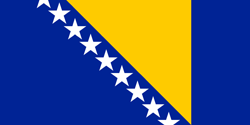Entrance in new decade shall be rememberd in modern history, as the biggest challenge for human population. The Covid-19 pandemic has brought irretriviable losses and uncertainty in the period that follows, but has taught us a lot as well. Most importantly, it has once again reminded us of the need to protect what is most important – health and life.
On a global level, in the midst of the pandemic caused movement and business prohibitions and thus related business entity losses, unemployment rate growth, illness and mortality, insurance sector is one of the business activities that has been affected by Covid-19 significantly – in profit segment (lower sales volume) and especially, in segment of claims expenses.At the same time, depending on the individual market development rate (measured by insurance types that are dominant) and economy in general (health care system included), the consequences on a local level are various, sometimes completely opposed. Thereby, e.g. in non-life insurance segment, on more developed markets, significant claim volumes which are based on compensation of business entity losses are recorded, whereas on less developed markets (which do not have or have outage insurance in traces) better business results are recorded due to lower claims expense (vehicles were not driven, factories did not work etc.)
In terms of life insurance, which are mostly sold in direct contact that was disabled, an estimated fall of premium income on a global level is cc. 4% (approximately BAM 500 billion), which is the first market fall of this type of insurance since 2008. Furthermore, claims volume due to illness, unemployment, death etc. have risen significantly therefore leading to a decline in financial business results up to 70% in comparison to previous period, or in some cases, losses.Large growth of paid insurance events has especially manifested in less developed countries, i.e. Bosnia and Herzegovina where due to deficient health care, quite high mortality rates from Covid-19 were recorded.
However, as insurance companies generally exist precisely due to such crisis situations, the above described trends have shaken but in no way endangered their business and stability. On the contrary, they have enabled them to consider additional possibilites of insurance coverage expansions as well as distribution channels, all with the aim of providing full protection of an individual, his family and property and bringing such protection closer to all clients through digital media, regardless of their location.
In this regard, a certain number of insurers on the West has already implemented solutions, which include applicant life expectancy predicition, as well as making life insurance offers avalilable online. This trend has been further continued during the pandemic and more companies have introduced the so called „accelerated insurance“, whilst those who already had it have improved it further. As a result, obtaining life insurance became more accessible, faster and easier to a larger number of interested clients.
When it comes to Bosnia and Herzegovina, given the legal and regulatory constraints, the digitalization process is not possible in a manner of concluding life insurance contract through online platforms. Namely, digital channels allow to report and solve claims as well as to deliver electronic life insurance offers, on the basis of which life insurance contract is concluded in a classic manner.The pandemic has certainly encouraged numerous initiatives in this context, and it is to be expected that companies whose parent companies headquaters are located in more developed countries shall lead the process of digitalization in the entire insurance market in Bosnia and Herzegovina, and use knowledge and opportunities that offer solutions that were developed as a response to situation caused by Covid-19.
On the other hand, as a result of situation in which healthcare systems worldwide have found themselves in, what is noticeable is the change of perception of the need for life insurance. While in the past life insurance has been observed as a luxury, nowadays it increasingly represents a true need of every individual.
Thus, i.e. in neighboring Serbia there was a noticeable increase of generated premium by BAM 6.5 million in comparison to 2019, which indicates that people are becoming aware of the risk and significance of such segments of protection. On a global level, according to research performed by a non-profit organization „Life happens“, 67% of Americans have reconsidered their financial planes in terms of insurance during the pandemic, while on average one in four people have concluded a life insurance contract for the first time due to risks caused by Covid-19.
However, in contrast to the aforementioned trends, life insurance market in Bosnia and Herzegovina has recored a cca BAM 2 million decline in 2020, which has further deepened the gap between other insurance segments present in Bosnia and Herzegovina. This certainly cannot dispute the fact that the Covid-19 pandemic, as well as the healthcare system response to the same did not raise citizens' awareness of the need for life insurance, but it does indicate the need for life insurers to invest additional resources in educating on what this type of protection represents and how it can, in most direct means, assist in circumstances of uncertainty that arise in such and other similar situations.
Given the abovementioned facts and trends, the increase in interest for life insurance is not surprising. However, there is certainly room for further improvement of various segments that would bring positive changes. The fact that we have become far more aware of the importance of being prepared for the unforseen, timely search for most optimal and adequate solutions is the best we can do in order to protect the lives and health of our loved ones and our own.













